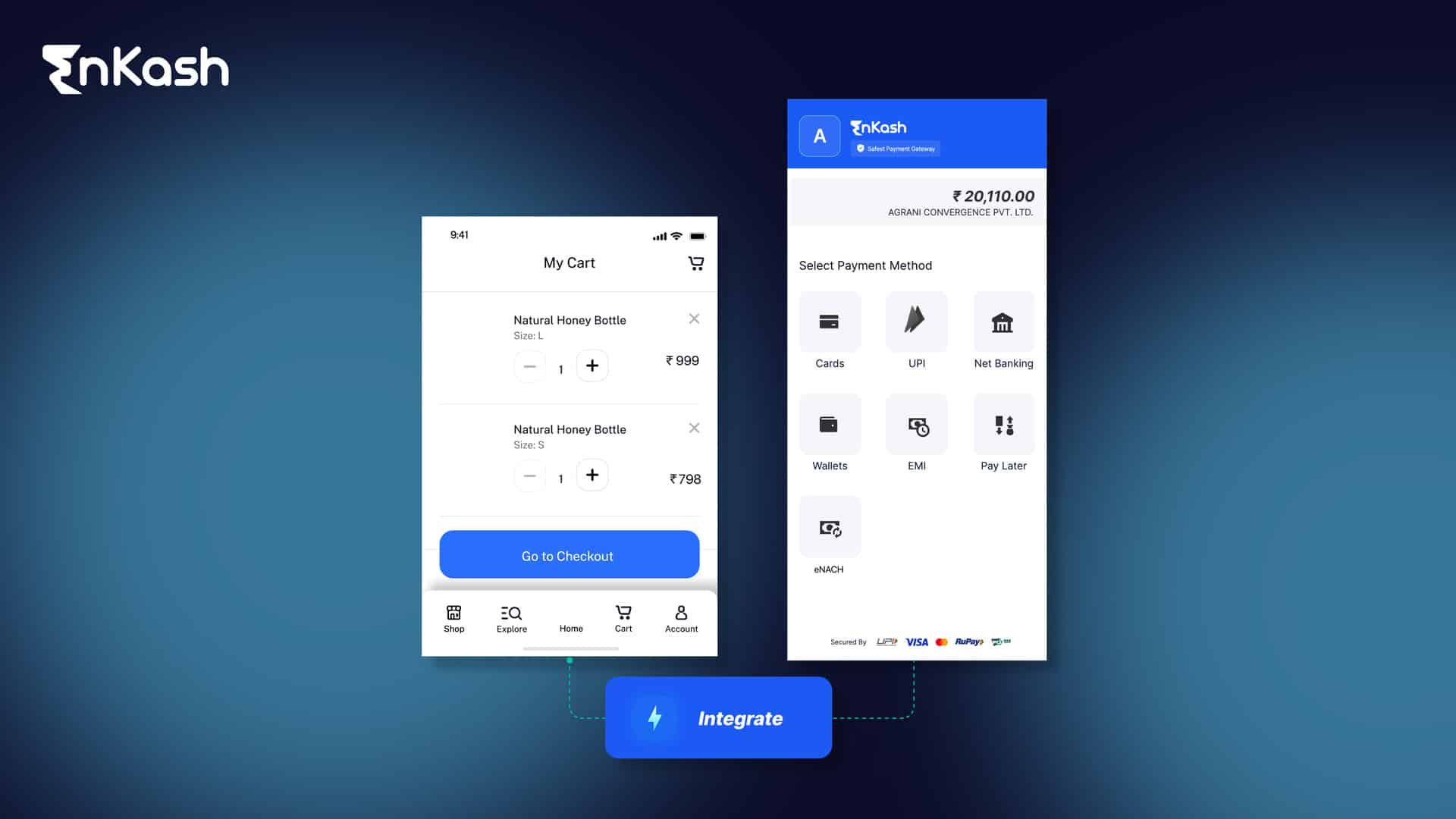Bookkeeping and accounting are two essential areas of business accounting. Both are required for a company’s financial stability, but possess distinct processes, objectives and roles. While bookkeeping focuses on organizing financial data, accounting focuses on analyzing the financial data.
The article will explore the concept of bookkeeping vs. accounting and why both are crucial for financial accounting. We will also look at how these financial workflows support business decision-making and long-term profitability.
What is Bookkeeping?
Bookkeeping is the foundation of accounting in any company. It is the act of tracking everything financial in an organization, from sales to expenses to salaries and taxes.
Bookkeeping is the backbone of financial management in any business. It involves systematically recording all financial transactions that occur within an organization, from sales and expenses to payroll and tax payments.
Definition and Purpose of Bookkeeping
Bookkeeping involves the systematic recording of accounting records and transactions. Its main goal is to have a correct and comprehensive record of all monetary transactions. It helps businesses stay compliant as they can accurately track revenue, costs and liabilities. It also aids in high-level analysis of financial data and reporting.
Core Activities in Bookkeeping
- Identifying Transactions: Every financial transaction is identified and recorded.
- Recording Transactions: Bookkeepers keep records chronologically so as to avoid errors and violations.
- Creating Ledgers: Similar transactions are recorded in a ledger for easy reference.
- Preparing a Trial Balance: This is so the credits and debits reconcile (important to accurate financial accounting).
Bookkeeper’s Role
A bookkeeper keeps financial records correct and current. Their thorough documentation gives managers crucial data to understand how the business is running. They tend to do the day-to-day accounting so that a company’s financial information is documented and easily available.
What is Accounting?
Accounting, though connected to bookkeeping, is more extensive. Accounting not only collects information, but translates financial data into actionable business insights.
Definition and Purpose of Accounting
Accounting is referred to as the ‘language of business’ because it reports on financial results to the stakeholders. It goes beyond the record-keeping step and analyzes the data to figure out a business’s financial standing. Accounting is what makes raw financial data into decision relevant information.
Core Activities in Accounting
- Summarizing Financial Data: Accounting simplifies financial data for stakeholders with data like performance summaries.
- Analyzing Financial Information: Financial data is studied to identify patterns and trends that supports decision making.
- Creating Financial Reports: Accountants develop financial reports like income statements, balance sheet, and cash flow statements.
- Auditing and Compliance: Making financial data compliant with tax laws and regulations is also part of accounting.
Accountant’s Role
Accountants analyze the company’s finances, write up reports for leadership and provide strategic guidance. They help stakeholders understand data, make decisions, and maintain financial transparency and compliance.
Read more: Financial Accounting
Bookkeeping vs. Accounting: Key Differences
The differences between bookkeeping accounting and accountancy can be used by companies to make informed decisions regarding hiring personnel or implementing financial systems.
1. Scope
- Bookkeeping: Its primary purpose is to record accurate financial data in an organized manner.
- Accounting: It includes summarizing, reviewing, and reporting financial information. It relies on bookkeeping data to give an overall picture of a company’s financial position.
2. Skill Requirements
- Bookkeeping: Demands accuracy and precision but typically does not require any special training. Bookkeepers are often trained via experience or certifications.
- Accounting: Requires expertise in accounting, taxation, and corporate principles. Accountants often have formal education and certifications.
3. Role in Financial Management
- Bookkeeping: It provides the basis for accounting, by maintaining raw financial data in an organized manner.
- Accounting: Expands on bookkeeping to process and interpret data and make it meaningful to the business.
4. Decision-Making Impact
- Bookkeeping: Helps in day-to-day financial administration but does not directly influence decisions.
- Accounting: It influences decision-making by providing insights on financial status and growth potential.
5. Complexity
- Bookkeeping: It is usually less complicated and involves capturing and tracking financial transactions.
- Accounting: It requires more technical knowledge for activities like statistical calculations, audits, forecasting, and budgeting.
Why Every Business Needs Both Bookkeeping and Accounting?
As we have seen above, accounting vs. bookkeeping differ in terms of their scope and impact but they are both essential elements of a business’s financial accounting process.
1. Ensuring Compliance with Financial Regulations
All companies have to meet local, national, and sometimes global, accounting rules. Both processes ensure financial data is accurate, the company is compliant and prevents the chances of fines or legal issues.
- How Bookkeeping Contributes: Bookkeepers keep meticulous records of earnings, deductions, payroll, and other financial transactions. These records are needed for tax filings and regulatory reporting.
- How Accounting Contributes: Accountants use bookkeeping records to determine taxes, create financial statements, and ensure financial processes are in accordance with the current rules and practices.
Read more: Balance Sheet Formats
2. Providing Transparency for Stakeholders
Bookkeeping accounting and accountancy together provide insights into how a business is performing, ensuring all stakeholders are aware of its financial health.
- How Bookkeeping Contributes: Bookkeepers’ records provide stakeholders with a history of financial activities and also forms the basis of financial statements.
- How Accounting Contributes: Accountants review these records and generate reports such as income statements, balance sheets and cash flow statements that shows the performance of the company.
3. Supporting Informed Decision-Making
Financial accuracy is key to strategic business decisions. Bookkeeping provides operational data that show the pulse of a business, and accounting takes these data and gives recommendations for planning and decision-making.
- How Bookkeeping Contributes: Bookkeepers document every transaction so that there is a trail of income and expenses. The data is also used to understand a company’s financial health and create budgets.
- How Accounting Contributes: By leveraging bookkeeping data, accountants evaluate metrics like profitability and liquidity to assist leadership with investment, and cost-reduction decisions.
4. Maintaining Financial Health and Stability
The right combination of accurate bookkeeping and insightful accounting can assist businesses to keep their cash flows in check and stay on top of things in the long run. Bookkeeping tracks daily transactions that impact cash flow and accounting monitors whether the business is able to meet financial commitments and maintain growth.
- How Bookkeeping Contributes: Bookkeeping ensures cash inflows and outflows are recorded correctly, giving an immediate view of the company’s current cash position.
- How Accounting Contributes: Accountants go over this information and make cash flow forecasts, analyze liquidity, and recommend financial changes for overall stability.
Read more: Cashflow analytics
How Software Helps with Both Bookkeeping and Accounting
Bookkeeping vs. accounting serve distinct purposes but they can both benefit from software solutions. These solutions can help reduce time, ensure precision, and provide businesses with real-time financial analysis.
1. Automating Routine Tasks
- Efficiency in Bookkeeping: Software can help automate bookkeeping tasks like data entry for day-to-day financial transactions or invoicing. Automation can help minimize human errors and allow bookkeepers to devote their time to other vital activities.
- Accuracy in Accounting: Automation enables consistency across financial reports. This consistency is important when preparing financial reports or performing audits. It can also be customized to send reminders for deadlines like tax filing.
2. Real-Time Financial Monitoring
- Instant Access to Data: Bookkeeping software provides an instant overview of a business’s financial health, from cash flows to accounts receivable, and payable. It helps stakeholders access real-time data and remain in control of finances.
- Enhanced Financial Analysis: A software can help monitor cash flow trends and different financial metrics. It allows accountants and leadership to make business decisions backed by accurate data and the current financial state of the business.
3. Data Organization and Integration
- Streamlined Data for Bookkeeping: Software keeps your financial data in one standardized format that can easily be accessed when you need it. Transactions are chronologically saved and can be categorized according to type, which will be accessible in the future for audit or inspection.
- Integration Across Departments: Accounting software works with other business systems such as payroll and inventory to ensure that every department has an integrated financial record. This integration eliminates departmental inconsistencies and ensures an easier flow of data to perform functions like inventory cost calculation and payroll.
4. Financial Reporting and Insights
- Customizable Reports for Bookkeepers: The software helps bookkeepers produce granular transaction logs, ledger summary, and trial balances. Such reports are used to validate records and enable the next step in accounting analysis.
- Advanced Analysis for Accountants: Accountants can use software to create sophisticated reports like income and cash flow statements. It can also help them visualize trends and patterns which further helps with planning and forecasting.
5. Enhanced Compliance and Security
- Bookkeeping Compliance: Several tools help companies follow tax laws by filing records according to tax regulations and creating reports for proper tax filing.
- Security in Accounting: Accounting tools come with security measures such as encryption and access control. They also have audit trails that allow accountants to see when financial information has been altered to ensure transparency.
6. Scalability for Growing Businesses
- Flexible Solutions for Bookkeeping: As a business scales, bookkeeping requirements become more complex. The software provides scalability, so organizations can process more transactions without compromising on accuracy.
- Advanced Features for Accounting Growth: Scalable accounting solutions have capacity to accommodate larger, more complicated accounting activities, including aggregating reports across multiple locations or divisions.
Practical Examples: Bookkeeping vs. Accounting
Let’s look at a few real-world examples to better understand the concept of bookkeeping vs. accounting.
1. Recording Sales and Expenses
- Bookkeeping Example: Bookkeepers record each sale transaction, online or offline, as it occurs, including amount, date and customer information. The same goes for expenses like utility bills, purchase of supplies or service charges. These entries are a way of keeping every transaction recordable and archivable.
- Accounting Example: An accountant examines monthly or quarterly sales figures and expenses and to study revenue patterns and profit margins. The examination is used to identify revenue-generating products or services and find out where costs can be reduced, facilitating budgeting decisions.
2. Payroll Management
- Bookkeeping Example: The bookkeeper records salaries and wages paid to the employees at each pay cycle as well as deductions ( taxes, health insurance, etc).This data is critical to payroll reporting and compliance.
- Accounting Example: Accountants evaluate the cost of labor based on payroll data. They could review payroll costs to find out how they impact the bottom line or measure employee capacity based on the changes in revenue and labor rates.
Read more: Payroll Processing
3. Tax Preparation and Filing
- Bookkeeping Example: During the year, bookkeepers document all of the income and expense transactions to have a comprehensive documentation ready for tax filing. They itemize expenses, so the business can claim corresponding deductions to reduce their taxable liabilities.
- Accounting Example: Accountants use bookkeeping records to calculate the business’s taxable income, file taxes, and comply with tax regulations. They might also devise tax planning to cut costs, for example, putting some of their expenses on the back burner or using as many deductions as possible.
4. Inventory Management
- Bookkeeping Example: Bookkeepers write down every inventory purchase and sale, update stock counts and make sure that the cost of inventory is properly recorded. These logs maintain real-time information on stock levels which allows companies to track and control stock effectively.
- Accounting Example: Accountants examine books to determine cost of goods sold (COGS) and rate of turnover of inventory. It’s used to evaluate how profitable the company is and can show underlying demand patterns, which might then inform future purchases or price corrections.
5. Budgeting and Forecasting
- Bookkeeping Example: Bookkeepers keep accurate records of past revenues and expenditures which provides a factual basis for developing budgets for the future. The data shows consumption trends and recurring expenses which will be useful as a base for generating a budget.
- Accounting Example: Accountants work on historical information to make budgets and projections. Trend analysis, revenue and expense forecasting are all techniques that accountants use to help management allocate the resources and prepare for growth, cost savings or investments.
Conclusion
Bookkeeping and accounting serve different purposes, but they are inseparable. Bookkeeping records daily transactions, structures and organizes them for accuracy. Accounting uses bookkeeping data for analysis and delivers insights. Together, they allow financial transparency, regulatory compliance, and decision making, which is the cornerstone of every company’s success.
In an era where owning financial knowledge is critical, understanding the concept of bookkeeping vs. accounting so that individuals and companies can make data-backed financial decisions. If you are a small business owner or an experienced one, understanding the functions of bookkeeping accounting and accountancy will help you stay on top of your finances, handle risks, and steer your business toward long-term success.
FAQs
Why is bookkeeping important for businesses?
Bookkeeping helps record and maintain comprehensive and correct financial data. The data forms the basis for all financial reporting, tax returns and regulatory compliance. Bookkeeping makes it possible for companies to measure income and expenses, which is a critical component in financial planning, budgeting and overall business decisions.
What is the main difference between bookkeeping and accounting?
Bookkeeping involves keeping track of daily finances such as the sales and expenses. Accounting, on the other hand, translates, interprets and summarizes these financial data to produce reports and facilitate decision making.
Are software solutions available for performing bookkeeping and accounting activities?
Yes, there are many businesses that utilize software tools such as QuickBooks, Xerox, and FreshBooks to automate the bookkeeping and accounting process. Software automates work, improves efficiency, and provides data analysis options for easier financial control and report writing.
What is the role of bookkeeping in preparing financial statements?
Bookkeeping records all transactions in ledgers and trial balances which accountants use to produce financial reports such as income statement, balance sheet, and cash flow statement. These statements would not have credible data without accurate bookkeeping, which would impair their validity.
What are the main reports produced in accounting?
The major financial statements are income statements (profits or losses), balance sheets (assets and liabilities), and cash flow statements (inflows/outflows of cash). Stakeholders are given access to these reports to get insights into the business’s financial position and make decisions.
What is double-entry bookkeeping, and why is it used?
Double-entry bookkeeping has the process of accounting where each transaction goes to two accounts, one debit and one credit. It is the method that makes sure that the equation – Assets = Liabilities + Equity, remains balanced and prevents the chances of misrepresentation.
How do bookkeeping and accounting help in tax preparation?
The process of bookkeeping involves recording every financial transaction, which makes it easy to tax liabilities and claim deductions. The records are used by accountants to compute tax payments, file returns and look for tax-saving opportunities, so the company stays in compliance with the tax laws.
Is it necessary for small businesses to have both bookkeeping and accounting?
Yes, even small businesses can benefit from both financial processes. Bookkeeping keeps track of transactions and accounting interprets them to give insights on profitability, cash flow, and business performance. Together, they help make informed choices, ensure compliance and drive expansion.
How important is the accounting process in business decision-making?
Accounting analyzes financial information to provide an overview of a business’s performance and financial stability. Managers use these insights to make informed choices about budgets, expansion plans, and cost-control. Accounting information can be used to calculate profitability and the future direction of the business.













